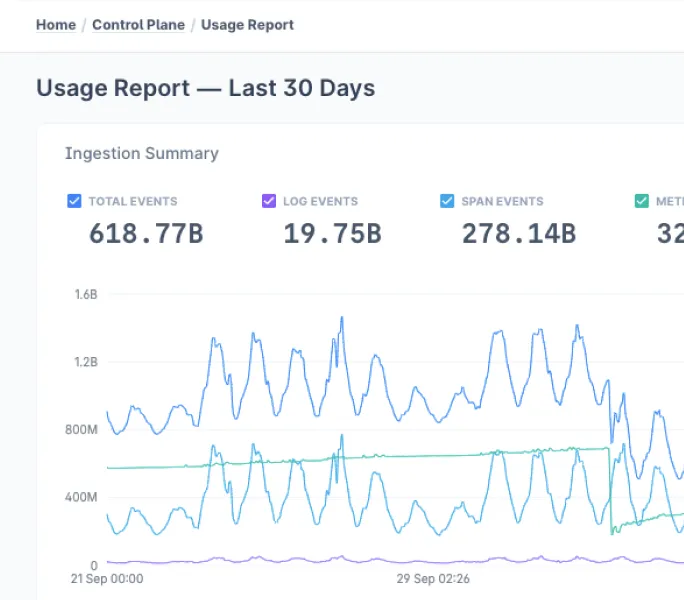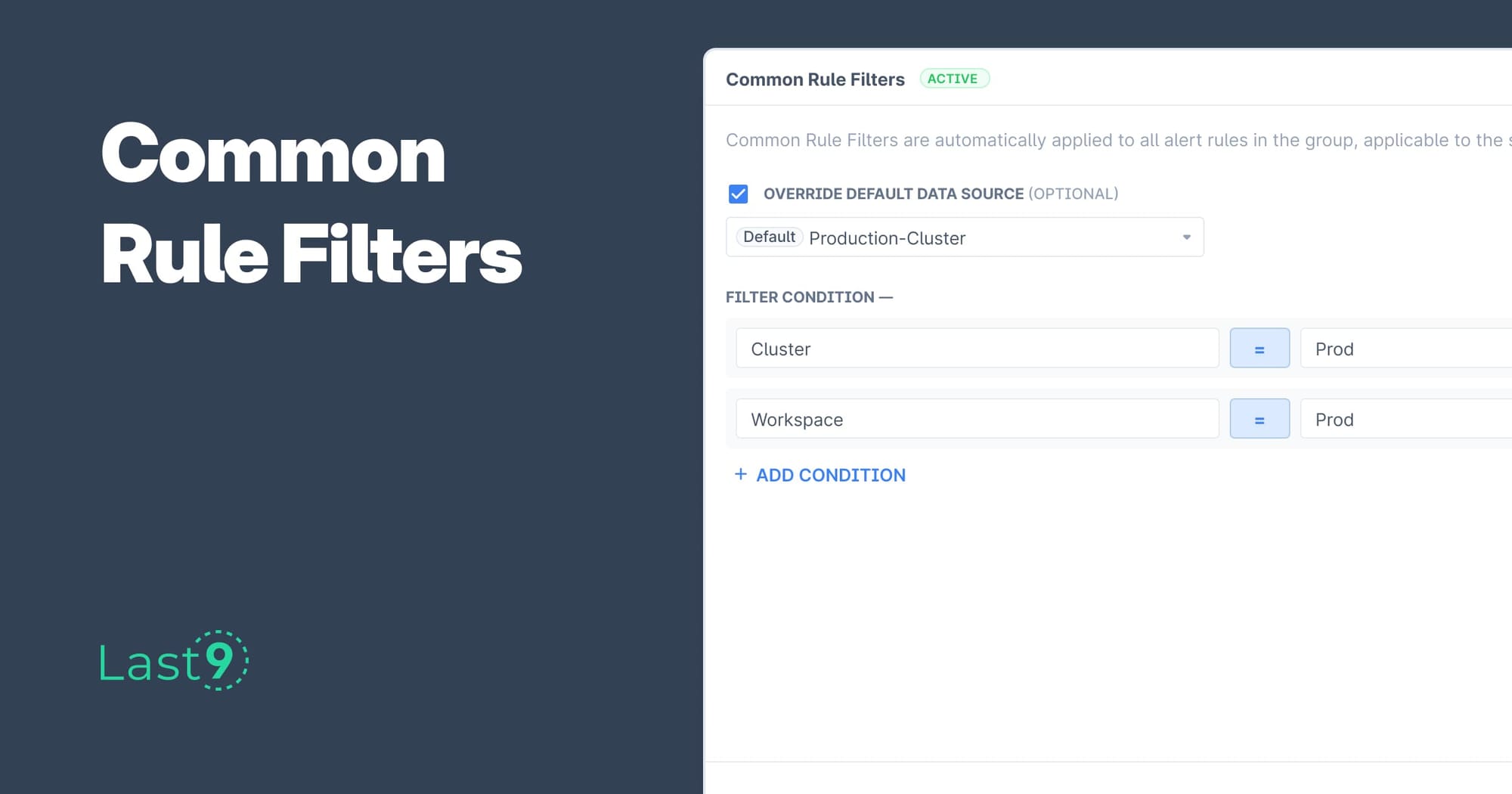Common Rule Filters for Alert Groups allow users to specify PromQL filter conditions that will get injected into every Indicator that is part of the group. Since these filters are injected at the indicator level, they are also honored in the alert evaluations.
A demo for Common Rule Filters
Common Rule Filters can be used when an Alert Group represents some component in your system, and the component is identified by a specific PromQL label filter. For example, if your alert group represents a particular Kubernetes deployment called “login”, the PromQL of every indicator will have deployment="login" in the filters.
Common Rule Filters allow you to specify this condition only once at a group level, instead of adding a label filter for every indicator or alert rule. It is also a good way to show the intent of scope of an alert group. The above deployment filter, when configured as a Common Rule Filter prominently signals that the alert group represents a particular deployment.
They can also be maintained by declarative alerting via IaC. The updated YAML structure with the new adhoc_filters key would look something like this:
entities:
- name: quant-services
external_ref: quant-services
type: service
entity_class: alert-manager
namespace: test-namespace
indicators:
- name: throughput
query: sum(up)
unit: count
alert_rules:
- indicator: throughput
name: throughput_2000
greater_than: 2000
bad_minutes: 4
total_minutes: 10
adhoc_filter:
data_source: last9-legacy-cluster - ap-south-1 (system)
labels:
cluster: alpha.last9.io
